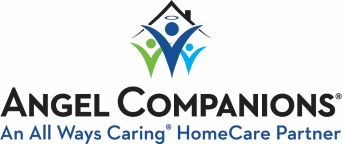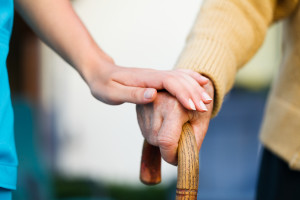Multiple surveys indicate that 78 percent to 92 percent of seniors prefer to age in place and remain in the comfort and familiarity of their own home.
When chronic health conditions such as dementia, surgery or the normal aging process make it unsafe for a senior to live at home, family, friends, and home care agencies can provide assistance.
For most people, the ability to live independently is critical to maintaining quality of life. The good news is that paying for home care can be the most cost effective method of care. Long-term care is not just about nursing homes anymore.
Governor Wolf recently announced a plan for more Pennsylvania seniors to get caregiver services in their homes rather than in nursing homes. According to a Pennsylvania Department of Health website, the daily Medicaid reimbursement at a Philadelphia Nursing Home is $230 a day or $83.950 a year. For home care, the daily Medicaid reimbursement in Philadelphia is $76 or $27,740 per year. Although the great majority of home care is paid for privately, these are some alternate plans for assistance.
Medicare – Medicare will pay for home care aides if the patient’s medical condition also requires visits from a Registered Nurses, a Physical Therapist or a Speech Pathologist. The individual must be homebound and service must be ordered by a physician and the doctor must certify that the care is medically necessary. While covered by Part A or other private Medicare insurance plans, the services are mostly short term. Medicare will not pay for just personal care since it is considered custodial in nature.
Medicaid – For persons with limited financial resources, Medicaid may pay for nursing home care. The Pennsylvania Department of Aging in conjunction with the Department of Public Welfare also provide programs to help Pennsylvanians live independently in their own homes and communities.
Through the Office of Long Term Living home care services are available through various Waiver programs. These programs offer a wide array of services and benefits for those who qualify. The name Waiver, comes from the fact that the federal government “waives” Medical Assistance/Medicaid rules for institutional care in order for the State to use the same funds to provide support and services for people within their own communities. Each Waiver program has its own set of eligibility requirements. In general, the asset limit for an individual applying for a Waiver program is between $6,000 and $8,000. Additional information is available by contacting the PA Department of Aging at 1-717-783-1550.
VA Benefits – If your loved one is a veteran or is an immediate family member of a senior veteran, benefits may be available through the Veterans Administration. If a veteran has served at least ninety days on active duty with one day during a time of war, he or she may be able to qualify for benefits that could cover a percentage of the costs of in-home care.
Long Term Care Insurance – An ideal scenario for covering the cost of home care is if your loved one has a long term care insurance policy. These policies can help defray all or part of the expenses. Many of these policies will only cover institutional care and not care at home so review the coverage carefully. If your loved one is young enough and can afford the premiums, be certain that the policy covers home care as an option before making the purchase.
Private Pay – Life savings and other investments may need to be used to pay for long term care. The amount of savings used depends on the amount of coverage needed. Care for a senior with Alzheimer’s may need 24 hour care. Talk to your doctor first about the amount of care you will need and then research the best alternative. A reverse mortgage or Home Equity Line of Credit may be viable when significant equity remains in the private residence.



